Peking University, December 18, 2020: On December 12, the International Relations Panel Webinar on International Public Policy in a Turbulent World took place online and offline at Peking University. As a sub-forum of the Beijing Forum 2020, the academic event invited renowned experts from China and abroad to speak on the impact COVID-19 has had on global governance and international public policies, as well as the response to it. Secretary-General of the Beijing Forum Yan Jun, Deputy Director of PKU Office of Humanities and Social Sciences Wang Dong attended the event, along with over 200 online participants including students and individuals from across a wide variety of industries.
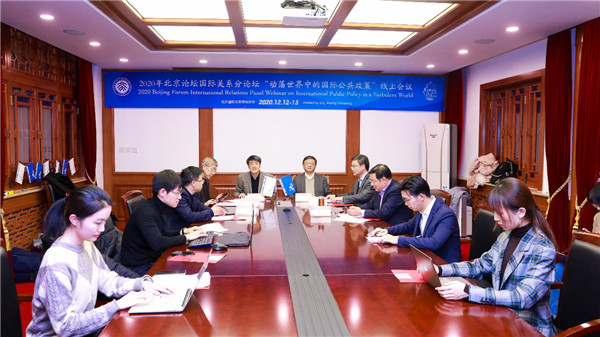
The panel of guest speakers was comprised of:
• He Yafei, Former Vice-Minister of Ministry of Foreign Affairs, China, Former Deputy Director of Overseas Chinese Affairs Office of the State Council;
• Amitav Acharya, Distinguished Professor of International Relations, The UNESCO Chair in Transnational Challenges and Governance, School of International Service at American University;
• Jia Qingguo, Member of the Standing Committee of the National Committee of the Chinese People's Political Consultative Conference, Professor of School of International Studies, Peking University;
• Yao Yang, Yangtze River Distinguished Professor, Dean of National School of Development (NSD), Peking University, and the Executive Dean of ISSCAD;
• Sir Danny Alexander, Vice President of AIIB;
• He Changchui, Former Deputy Director-General of FAO;
• Tu Ruihe, Chief Representative of China Office, UNEP;
• Fang Li, Country Director, WRI China.
The sub-forum started off with the first session on the topic of “Global Governance: Challenges, Opportunities and Response”. Wang Zhengyi, director of the School of International Studies Academic Committee at Peking University, was the moderator for this session. Guest speakers shared their views on issues such as the impact of COVID-19 on current and future global governance, and the main challenges and opportunities facing global governance.
In his opening address, Professor Tang Shiqi, dean of the School of International Studies at Peking University, noted that the crux of the sub-forum was to address fundamental solutions to this global crisis. He pointed out that the lack of global governance and global public policies has played a large role in global instability. This can be seen in the lack of complete control over COVID-19, which requires countries to push aside vested interests and work together. Hence, improvements in global governance and effective international policies are needed if to keep up with the globalization of transportation, communication, and technology, as well as preventing the spread of diseases.
Tang stressed the fact that the COVID-19 pandemic and trade frictions have led to a sudden drop in the levels of global governance, thus arousing public worry. Despite a lapse in global governance, it is important not to lose confidence in the future of global governance. Tang outlined the need to further exert intellectual creativity and the spirit of exploration, so as to enrich the global systems of governance and construct more flexible and effective international public policies.

Tang Shiqi
He Yafei marked the COVID-19 pandemic as the accelerator and catalyst for major changes in the system of global governance. In his opinion, the root causes behind the changes of the system of global governance lie in the changes of the global balance of power, the severe global economic recession of the last two years, the emergence of non-traditional security issues coupled with risks of geopolitical competition, and the rapid advancement of the technological revolution. He stressed that in order to achieve desirable results as soon as possible, the reconstruction of global governance should start in the most urgent of areas, and in areas that are capable in such endeavor.
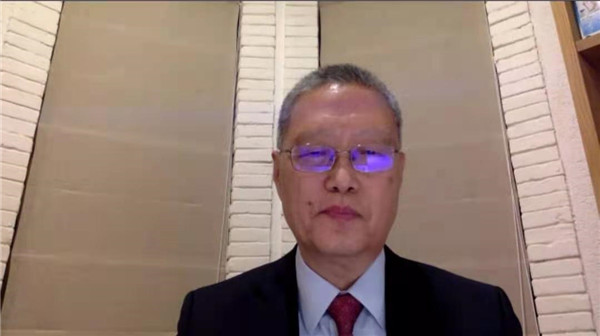
He Yafei
The next speaker for the session was Amitav Acharya. Though stabilizing and mobilizing the international community after a global crisis is a key feature of global governance, there has been an increase in conflicts amongst the international community in recent years. In light of the fragmentation of global governance, he suggested emphasizing the importance of working together to lead in global governance, enforcing emergency response actions by the international community during a global crisis, enhancing the openness and transparency of global governance through cooperation between public and private sectors, paying more attention to regionalization, especially in strengthening efforts to address issues such as public health and poverty alleviation on grass-root and municipal levels, and strengthening cross-regional coordination and cooperation under multilateralism.
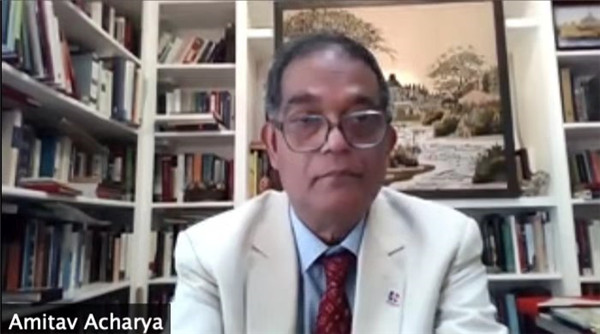
Amitav Acharya
Jia Qingguo then gave his speech on the topic of “Challenges and Opportunities: Global Governance at a Crossroad”. From his point of view, the weakening of international order in recent years can be attributed to three main facets: the abandonment of international responsibilities by the US during the Trump administration, intensification of conflicts between China and the US, and the severe polarization among countries. Regarding the prospects for global governance, he listed favorable factors, for example the upcoming Biden administration that is willing to shoulder the responsibilities of leadership, and unfavourable factors including the difficulty in solving internal structural problems like a widening poverty gap that may produce global externalities. He further stressed that the future of global governance will be greatly affected by China-US relations.
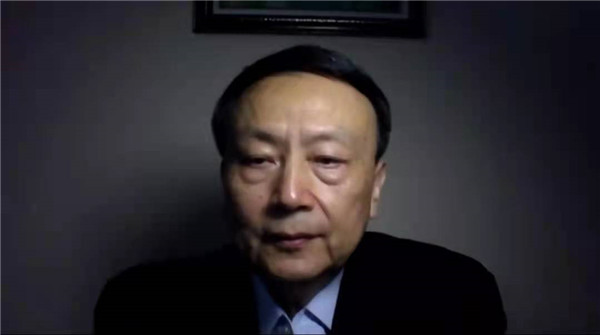
Jia Qingguo
Yao Yang pointed out that globalization requires regulation. Both the US and China will need to adjust their approaches towards development. He noticed that the vast majority of Americans did not benefit from the anti-globalization trend, and hence the US ought to adjust national policy accordingly. At the same time, due to weakening external demand brought on by the pandemic, China can no longer rely on this demand for its economic development. In addition, he said that the rules and regulations set forth by the World Trade Organization will need to reform, thus providing countries with greater flexibility in adjusting regulations.

Yao Yang
The second topic discussed was “International Organizations and Evolution of International Public Policy”, hosted by Zhang Haibin, associate dean of School of International Studies at Peking University. The discussion centred around questions like the impact of the global pandemic on international organizations and the role of international organizations in managing the crisis.
Sir Danny Alexander shared how AIIB has played its part in crisis management. AIIB works to offer financial support to middle- and lower-income countries to support the development of infrastructure for producing COVID-19 vaccines, as well as to facilitate economic growth and employment during the stages of recovery. He noted that AIIB’s accomplishments over the past five years is a testament to the bright future of multilateral cooperation, through which countries can unite under shared goals for the benefit of common progress.
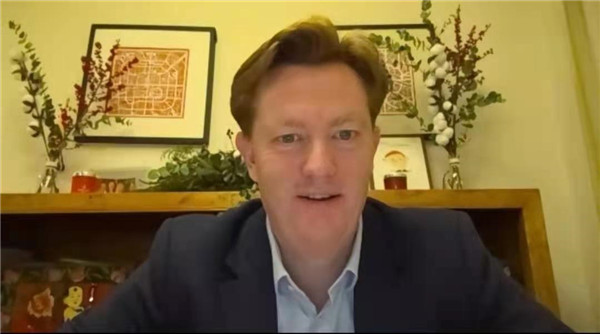
Sir Danny Alexander
He Changchui’s speech revolved around the topic of “The Post-Pandemic Responsibility and Reform of the United Nations”. During his speech, he reflected on the peril faced by global governance in today’s world. He also noted the shortcomings of the United Nations structural mechanisms and highlighted the need for reform. He offered three suggestions: advancing multilateralism and democratization of global governance, improving the efficiency and transparency of international organizations, and strengthening talent development.

He Changchui
Tu Ruihe shared his insights on the role played by international organizations in global environmental governance. He looked back on past international conferences and talked about achievements made in the area of multilateral environmental governance. He also touched upon the changes of governance today. As environmental conditions continue to deteriorate as a whole, he asserted that in the post-pandemic era, the window of opportunity for an international green transition needs to be seized.
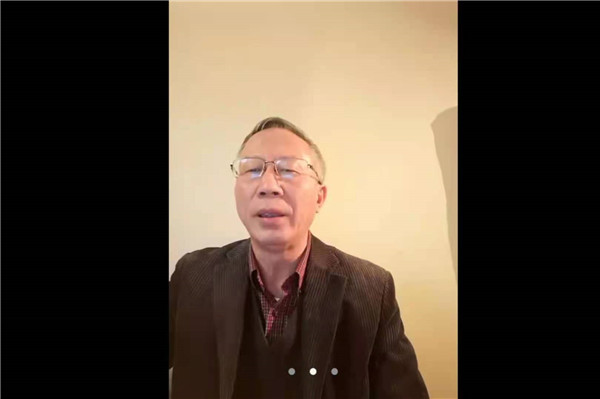
Tu Ruihe
Fang Li placed emphasis on the role and contribution of non-state actors when it comes to global governance. The advent of pluralistic governance has heightened participation of non-state actors and the increased capacity of non-governmental organizations in decision-making process. However, the increase in developing states and non-state actors has yet to make up for deficits in global environmental governance. As such, Fang stressed the need to strengthen regional and sub-regional cooperation and foster greater cooperation between pluralistic actors. She believes in the importance of improving global governance in the areas of climate change and biodiversity through cooperative consensus.

Fang Li
The International Relations Panel Webinar, one of the eight sub-forums of the Beijing Forum 2020, was held online through video conferences and offline at Peking University on the evenings of December 12 and 13. In a changing global context, intellectual dialogues and policy-level collaboration are urgently needed to cope with traditional and non-traditional threats to international security and to meet the challenges to international peace and world development. To address these emerging issues, world-renowned scholars and professionals were invited to exchange views on four topics: Global Governance: Challenges, Opportunities and Response, International Organizations and Evolution of International Public Policy, Evolution and Changes of International Climate Policy, Evolution and Changes of International Health Policy.
